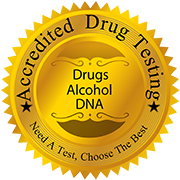In recent weeks, the National Drug & Alcohol Screening Association (NDASA) has hosted a series of COVID-19 Townhall Discussions for its members in the drug and alcohol screening industry.
The main takeaways from these meetings? Our members are passionate about the important work they do to keep communities and workplaces safe. They want to get back to work. And, they are committed to practicing good citizenship by following public health guidelines and reducing the risk of virus infection.This is the second in a series of blogs on the New Normal the drug and alcohol screening industry will face as COVID-19 restrictions begin to ease and Americans get back to work. The first article covered the expected increase in substance use disorders post-self-quarantine.
To be able to do their jobs safely and effectively moving forward, members say they need:
- Clear and detailed guidance from the government and federal agencies, especially the U.S. Department of Transportation (DOT).
- Industry-specific resources and information that can help them begin the process of reopening their businesses.
NDASA will continue to monitor and provide updates on guidelines, policies and procedures from the government and DOT as we get them. We also will continue in our role as an advocate for our industry by requesting clarity and consideration when it comes to the rules and processes that apply to our members.
In the meantime, here is a summary of the guidelines as they stand through June 30, 2020.
WHAT WE KNOW
DOT is maintaining its mandated drug and alcohol program and continuing to require drug and alcohol testing. It is, however, allowing for some flexibility to allow transportation industries to conduct their operations safely and efficiently during the period of national emergency.
If collection facilities are closed or not available, DOT recommends that employers consider mobile collection services for required testing.
According to the most recent guidelines posted by the Office of Drug and Alcohol Policy & Compliance (March 23), employers must make all “reasonable efforts” to conduct mandated drug and alcohol testing. However,
- DOT is allowing for some leeway in random drug testing schedules as long as employers make every effort to complete all required random drug testing by the end of 2020.
- There is flexibility in the timing and completion of various testing types as long as the reasons for delays are due to COVID-19 and are fully documented. (Individual modalities may have slight variations to this guideline.)
- As always, employers are responsible for assessing a refusal to test, but DOT asks that they be sensitive to COVID-19 fears.
- Pre-Employment and Return to Duty testing must be completed before an employee can perform or return to a safety-sensitive job. (Again, individual modalities have slight variations to this guidance. For example, under FAA regulations an employee cannot be hired without pre-employment testing.)
- When a mandated test is not conducted or completed, employers must keep a full record of the reasons why a test was not done.
Substance Abuse Professionals (SAPs)
During the national pandemic, ODAPC is allowing SAPs to conduct remote face-to-face evaluations and assessments. To conduct remote assessments, SAPs need to have access to appropriate technology to ensure an accurate evaluation. They should also document the assessment format in the final report.
Requalification timelines for MROS, STT/BATs and SAPs
If a service agent is unable to meet their re-qualification due date because of COVID-19, DOT will not consider them non-compliant. Medical Revie Officers, Blood and Alcohol Testing providers, and Substance Abuse Professionals will be considered qualified, per Part 40, to continue providing required services while the policy is in effect.
These general DOT guidelines remain in effect until June 30, 2020, unless further updated.
For information about more specific guidelines for individual modes of transportation, visit the following websites:
- Federal Aviation Administration (FAA)
- Federal Motor Carriers Safety Administration (FMCSA)
- Federal Railroad Administration (FRA)
- Federal Transit Administration (FTA)
- Coast Guard for Maritime Operators (now under Homeland Security)
- Pipeline and Hazardous Materials Safety Administration (PHMSA)
Our Townhall Discussions have shown that while the information provided over the last weeks from the government and DOT is helpful, NDASA members have many questions.
WHAT WE WANT TO KNOW
- More precise parameters about when a Refusal to Test should be considered COVID-19 related and when it shouldn’t.
- Additional information about job functions that would be considered at-risk during COVID-19.
- Options and requirements for alternative testing with social distancing/safe practices.
- Detailed guidance on virtual direct observation requirements for Return-to-Duty and Follow-Up testing
- Recommendations for ensuring that Personal Protection Equipment (PPE) is not used to conceal drug test cheat devices.
We will continue to keep members posted as we work to find answers. Please let us know what kind of information you are looking for by contacting info@ndasa.com.
Next in our blog series on the New Normal…Recommendations and Resources for Reopening a Safe Workplace

